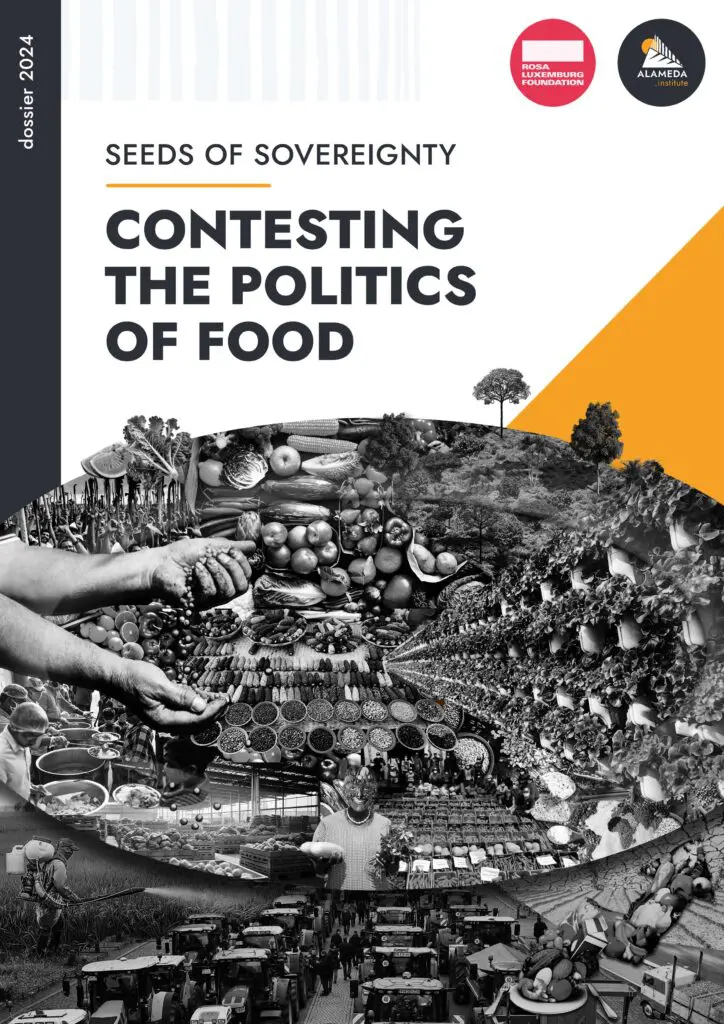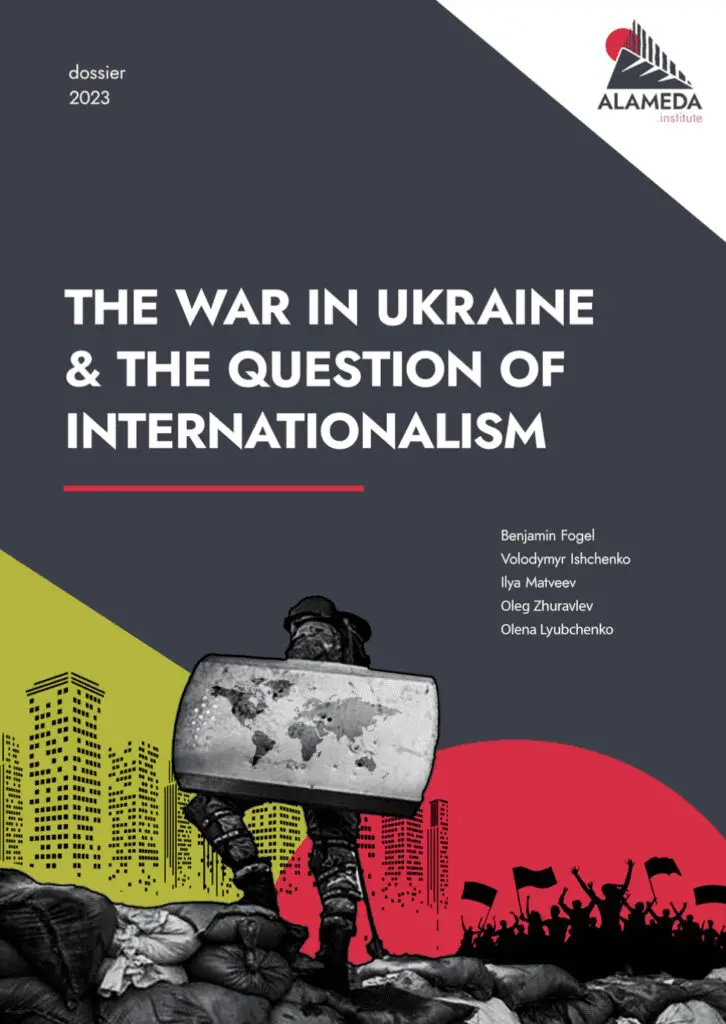I. Introdução: Contendo o dossiê de política
Um cenário hipotético: uma criança está se afogando em um lago e uma pessoa que não tem relação com ela está passando por perto. O lago é raso, e a pessoa certamente é capaz de evitar que a criança se afogue. Suas roupas ficarão molhadas e enlameadas, mas ela salvará uma vida.
Esse foi o cenário usado pelo filósofo Peter Singer para ilustrar a obrigação moral de agir em nome dos outros, quando essa ação não tem um custo moral comparável. Singer argumentou que a obrigação existia, independentemente de os outros estarem próximos ou distantes: a criança que está se afogando à nossa frente não é moralmente diferente da pessoa distante cuja vida está em risco, uma vez que estamos cientes da situação e de nossos próprios meios para intervir. Singer desenvolveu esse argumento pela primeira vez em 1971, em resposta aos eventos ocorridos no Paquistão Oriental, atual Bangladesh, quando sua população sofria os efeitos combinados da pobreza, de um ciclone devastador, da guerra civil e da violência genocida. A emergência atraiu a atenção mundial, com concertos beneficentes organizados por George Harrison e Ravi Shankar no Madison Square Garden, em Nova York. No entanto, apesar dessa atenção, o financiamento internacional ficou muito aquém do que era necessário. Singer viu isso como a negligência dos necessitados pelos ricos. ‘Infelizmente para aqueles que gostam de manter suas responsabilidades morais limitadas, a comunicação instantânea e o transporte rápido mudaram a situação’, argumentou. Do ponto de vista moral, o desenvolvimento do mundo em uma ‘aldeia global“ fez uma diferença importante, embora ainda não reconhecida, em nossa situação moral”.1 Peter Singer, ‘Famine, affluence and morality’ (Fome, riqueza e moralidade), Filosofia e assuntos públicos, 1:3 (1972), 234.
Singer estava escrevendo em um momento de ‘crise’ generalizada entre as principais instituições que se posicionavam como as respostas de emergência dessa suposta aldeia global. Conforme um relato observou que, no início da década de 1970, ‘praticamente todo o elenco do que hoje chamaríamos de sistema humanitário internacional estava reunido no palco: estados doadores, órgãos da ONU, a Cruz Vermelha e o Crescente Vermelho e as principais ONGs internacionais’.2 Peter Walker e Daniel Maxwell, Moldando o mundo humanitário (Londres: Routledge, 2009), 45. Muitos deles eram muito mais antigos, mas estavam assumindo cada vez mais as formas e configurações que dominariam o sistema de ajuda internacional nas décadas seguintes (observe a ausência reveladora de atores locais e nacionais - aqueles fora do Ocidente - na lista). Em termos normativos, também havia convenções internacionais que abrangiam proteções em tempos de guerra, direitos humanos e tratamento de refugiados. Os atores e suas regras de engajamento escolhidas estavam, portanto, prontos.
Ou não? Uma série de conflagrações nesse período expôs falhas graves na resposta de emergência internacional: lentidão, desorganização, duplicação em alguns lugares e lacunas em outros, exacerbadas por rivalidades institucionais, e suscetibilidade à manipulação. Um relatório do Secretário-Geral das Nações Unidas reconheceu as principais deficiências: ‘Um sentimento de frustração cresceu em toda a comunidade mundial ansiosa por ajudar, um sentimento também de que os esforços internacionais em momentos de tamanha catástrofe não estavam à altura da capacidade técnica e dos recursos da sociedade moderna nem satisfaziam a consciência do mundo’.3Assistance in cases of natural disaster (Assistência em casos de desastres naturais): Comprehensive report of the Secretary-General, 13 de maio de 1971, 4. https://digitallibrary.un.org/record/787654?ln=en&v=pdf Ao mesmo tempo, a destruição desencadeada durante os conflitos anticoloniais, pós-coloniais e da Guerra Fria revelou os limites das normas existentes na prevenção e mitigação do sofrimento em larga escala. Crimes de guerra e crimes contra a humanidade foram aceitos, e até mesmo executados, por Estados que ajudaram a codificá-los. Os praticantes de violência assimétrica e racializada de vários tipos e escalas subverteram, definiram ou simplesmente ignoraram as leis que poderiam ter sido invocadas para restringir sua conduta.
Desde então, momentos desestabilizadores como esse - quando o sistema humanitário viu suas contribuições práticas, sua força normativa e seus valores subjacentes serem questionados - têm se repetido a intervalos regulares. Estamos testemunhando um deles agora. Os desafios à legitimidade das organizações humanitárias ocidentais se fortalecem com as evidências generalizadas de suas falhas políticas e práticas - da Palestina ao Afeganistão, ao Sudão, à Etiópia e aos campos onde os refugiados Rohingya sobrevivem com rações de alimentos da ONU de algumas dezenas de centavos de dólar por dia. Os custos da dependência excessiva e da identificação excessiva com um pequeno número de doadores institucionais essenciais - principalmente os EUA e a Europa, tanto como um bloco quanto como Estados individuais - são revelados.
Cada vez mais, momentos como esse têm sido entendidos como uma demonstração não da importância ou do poder moral da função do sistema, mas de seu potencial para oferecer desvios. O sistema humanitário formal funciona como a principal ferramenta da comunidade internacional para reagir a emergências. Ele reivindica uma posição central não apenas na resposta às crises humanitárias, mas também na promoção de interpretações específicas sobre o que define esses contextos e qual resposta é necessária. Ao mesmo tempo e inversamente, autoridades de diferentes matizes podem projetar seu poder, evitar responsabilidades, socorrer ou negar ajuda às suas populações e àquelas consideradas estranhas, capacitando, ativando ou bloqueando os possíveis respondentes (dentro ou fora do sistema). Essas tensões perpétuas entre metas idealizadas e realidades instrumentalizadas tornam-se periodicamente quase esmagadoras. No entanto, historicamente, os momentos de desestabilização nesse sistema pouco fizeram para deslocar seus modos e atores dominantes, que conseguiram resistir às críticas recorrentes de pessoas de dentro e de fora do sistema. As mudanças na arquitetura da ajuda internacional de emergência coexistiram com uma tendência isomórfica amplamente reconhecida na história do sistema humanitário, uma vez que diferentes entidades associadas a ele evoluíram para se assemelharem mais umas às outras, reproduzindo, em última análise, os códigos e as funções centrais do sistema. Com essa perspectiva em mente, este dossiê explora a política da reforma humanitária, sua relação com outras agendas políticas e como os movimentos em direção à reforma refletem o lugar do sistema humanitário dentro da ordem internacional liberal.
A política de não ter política
A natureza apolítica do humanitarismo é uma das ideias mais populares do sistema humanitário formal, abrangendo tanto o princípio ético quanto a prática operacional. Os agentes do sistema são informados de que devem permanecer livres de interferências e motivações políticas. Sua recusa em se envolver explicitamente com a política ou em reconhecer (às vezes, até mesmo em considerar) sua identidade política é ‘triplamente bloqueada’ - por princípios e padrões humanitários, pela profissionalização da equipe e das estruturas humanitárias e pelo foco em resultados mensuráveis.4 Sou grato a Fernando Espada por articular esses pontos.
É claro que esse suposto apoliticismo é uma construção. Embora seu apelo duradouro sugira uma certa utilidade, seu valor tem sido frequentemente questionado por seus impactos na prática - como a possibilidade de enfraquecer ou marginalizar a análise política necessária para operar em emergências - bem como por sua falta de ambição, na medida em que exige que seus praticantes se restrinjam a uma parte específica do espectro da solidariedade.
Embora grande parte da discussão sobre a relação do sistema com a política tenha se concentrado em seu papel nas configurações operacionais, essas questões também permeiam o espaço da reforma humanitária. Algumas das ferramentas que buscam defender a noção de humanitarismo apolítico - padrões, códigos de conduta, estruturas de medição - são resultados de iniciativas de reforma, que se desenvolveram juntamente com reformas estruturais, como mudanças nos mecanismos de coordenação ou financiamento e a criação de novas instituições para promover a responsabilidade, a eficácia ou a qualidade do programa, para citar dois dos objetivos mais perenes.
As atividades agrupadas sob a bandeira da ‘reforma humanitária’ têm sido extensas e abrangentes; elas também aumentaram drasticamente nos últimos trinta anos. Especialmente a partir da década de 1990, houve uma grande produção de ideias, iniciativas e, em alguns casos, realizações na reforma humanitária. Esse período corresponde à expansão e à profissionalização do setor humanitário formal, um fenômeno, por sua vez, ligado ao fim da Guerra Fria, embora também reflita o declínio anterior de outras utopias mais revolucionárias. A literatura sobre práticas de reforma também cresceu. Embora a maior parte dessa literatura provavelmente seja melhor compreendida como sendo de reforma em vez de sobre No entanto, um crescente número de pesquisas tem demonstrado a importância de colocar a reforma sob o microscópio, para examinar seus processos, entender como ela molda o trabalho de assistência e posicioná-la entre as várias formas de ‘governar o mundo’ (seguindo Mark Mazower).
A política faz parte da reforma humanitária, em todas as suas manifestações, mas, como na ação humanitária de forma mais ampla, ela é sempre contida. Essa manobra de contenção pode ser implícita ou explícita, já que a identidade apolítica reivindicada por muitos atores humanitários convencionais estrutura a forma como eles veem suas funções e, portanto, como eles preveem os estados futuros e as formas de chegar lá. Assim, no início da década de 1970, Singer, por exemplo, viu o insuficiência de ajuda e ofereceu um relato moral, o mundo da ajuda tendeu a diagnosticar ineficiência e buscaram criar sistemas melhores. Formas de política redistributiva, como aquelas ligadas ao que Adom Getachew chamou de projetos de ‘criação de mundos’ dos anticolonialistas, às vezes chegaram aos horizontes das organizações humanitárias, mas esses engajamentos tendem a ser de curta duração. O apelo ao apoliticismo pode ser usado, com profunda convicção e também de forma mais tática, para abrir alguns espaços e fechar outros. Ele também pode produzir formas elaboradas de fechamento aberto, ou abertura fechada, à medida que os apelos à reforma são renovados em condições que negam qualquer perspectiva de conclusão. Também devemos reconhecer uma ausência esmagadora na reforma humanitária: as vozes daqueles a quem o sistema, como é dito com frequência, ‘visa servir’. Essas vozes também tendem a ser contido.
Hoje, as afirmações de que ‘o sistema precisa de transformação, não de ajustes nas bordas’ se tornaram comuns, quase uma exigência.5Tanya Wood, Mary Ana McGlasson, Meg Sattler, Kim Scriven, Christina Bennett e Balwant Singh, “Para que o sistema humanitário atenda às crescentes necessidades das pessoas afetadas por crises, precisamos de transformação e não de ajustes: A response to the 2022 State of the Humanitarian System Report”.” Médio, 8 de setembro de 2022. https://medium.com/start-network/if-the-humanitarian-system-is-to-meet-the-growing-needs-of-people-affected-by-crises-we-need-314233ad540e No entanto, os compromissos em nível de política que refletem essas ideias quase nunca vêm acompanhados de mecanismos de responsabilidade. Os signatários da Grand Bargain, talvez a principal reforma coletiva do sistema, simplesmente se autodeclaram; não há consequências se as apresentações estiverem incompletas, se os números estiverem incorretos ou se não tiverem feito nenhum progresso. Um funcionário do setor de ajuda humanitária, participando de um estudo diário sobre a reforma na prática, refletiu que ‘não sentimos pressão sobre nosso compromisso... [minha ONGI] se sente à vontade para desconsiderá-lo’.6Veronique Barbelet, John Bryant e Alexandra Spencer, Ação humanitária local durante a Covid-19: Resultados de um estudo de diário, HPG Working Paper (ODI, 2021), 19. Ao mesmo tempo, há sempre uma solicitação adicional de mais evidências sobre o que funciona, um catálogo atualizado de boas práticas, outro apelo por recomendações ‘acionáveis’ que todos possam endossar. A atividade continua, mas não a ação.
Ao mesmo tempo, o paternalismo do humanitarismo ocidental está sendo questionado com vigor e visibilidade impressionantes, mesmo entre (certos) círculos associados a ele. Na história da reforma humanitária, os movimentos para desafiar as suposições fundamentais sobre a relevância do humanitarismo ocidental e o papel dos agentes humanitários institucionais tiveram menos destaque do que as iniciativas para abordar sistemas e técnicas (mesmo quando essas iniciativas eram baseadas em valores). Recentemente, no entanto, houve um acúmulo de apelos para ‘transferir o poder’ para as comunidades locais, para confrontar o racismo na assistência humanitária, para ‘descolonizar’ ou para denunciar o humanitarismo como uma expressão da ‘supremacia branca’. As instituições estabelecidas foram instadas a ceder lugar ao ‘humanitarismo de resistência’ e - não pela primeira vez, como destacam os ensaios deste dossiê - o princípio da neutralidade foi criticado como uma porta de entrada para o desengajamento. No entanto, elementos desses discursos permanecem contestados dentro das agências humanitárias e quase totalmente ausentes em algumas delas; vários registros se misturam de forma a favorecer a retórica e tornar as ações pouco claras. Conforme descrito por Tammam Aloudat, as posições nos extremos - uma essencialmente desdenhosa de alternativas ao status quo, a outra defendendo seu total desmantelamento - passam a dominar uma discussão que ‘não é direcionada a uma solução, mas à aparência de uma organização aberta ao debate’.7Tammam Aloudat, “Quem pode descolonizar o humanitarismo?” Centro de Ação Humanitária, 21 de junho de 2021. https://www.chaberlin.org/en/blog/who-gets-to-decolonise-humanitarianism-2/ Como resultado, há uma fragilidade em alguns desses apelos, apesar das ricas tradições de pensamento anticolonial e decolonial sobre as quais eles poderiam se apoiar, e não obstante o desejo real, entre alguns, de algo diferente.8Eleanor Davey, Uma reflexão crítica sobre a reforma humanitária - passado, presente e futuro (Instituto Alameda, 2024). https://alameda.institute/report/a-critical-reflection-on-humanitarian-reform-past-present-future/
O que é produzido, então, frequentemente aparece como um teatro de mudanças. Uma encenação retórica de ambição, novidade e urgência, preparada por décadas de alegações de que o ‘humanitarismo’ - ou o sistema formal por meio do qual se supõe que ele funcione - está ‘em crise’, ‘quebrado’ ou enfrentando um momento existencial. Embora grande parte dessa crítica tenha vindo de pessoas de dentro, o setor também foi atingido por críticas externas da direita e da esquerda, que consideram a ajuda internacional um ‘desperdício do dinheiro do contribuinte’ ou parte de um regime de opressão dos pobres. Diante desses desafios, muitos dos quais vão muito além do que as equipes de emergência podem influenciar, o ‘novo’ pode parecer oferecer uma saída para as contradições e compromissos do sistema. Examinar o funcionamento da reforma humanitária é, portanto, considerar os limites do relacionamento do setor de ajuda ocidental com a esfera política.
Revisitando a história da reforma humanitária
Este dossiê da Alameda oferece uma janela para a política e os contextos políticos da reforma humanitária dos anos 1970 aos anos 1990. Seu objetivo é contribuir para o diálogo sobre o papel dos agentes humanitários que enfrentam crises e injustiças crescentes, mostrando como a política dos momentos reformistas do passado se desenvolveu ou não - se esses momentos foram aproveitados por determinados agentes, se perderam na dinâmica geral do sistema ou se ficaram fundamentalmente fora de suas formas de conceber a crise. Da vasta panóplia de tais momentos anteriores de reforma, este dossiê só poderia oferecer uma pequena seleção - uma que tenha sido feita com vistas ao presente.
A coleção mostra como as estruturas de interpretação informam e são informadas pelo desenvolvimento de ferramentas para o diagnóstico e o gerenciamento de crises. Essa é uma compreensão que está no cerne da crítica de Mark Duffield sobre as mudanças nas estruturas aplicadas à fome no Sudão a partir da década de 1970. Duffield mostra como a fome e o conflito civil se tornaram normalizados à medida que os esforços para explicar suas causas deram lugar a tentativas de prever sua recorrência. Os humanitários ocidentais são reguladores da morte, argumenta Duffield, e não salvadores da vida; o que eles toleram foi incorporado às tecnologias que desenvolveram. Assim, mesmo quando os atores do setor confrontaram suas próprias deficiências, a tendência de se colocarem no centro da história limitou as conclusões a que puderam chegar. Conforme demonstrado por Rahmane Idrissa, as intervenções externas não conseguiram compreender a catástrofe que estava crescendo no Sahel desde o final da década de 1960 e até mesmo a exacerbaram. Os movimentos camponeses se seguiram, tanto literalmente, à medida que as pessoas migravam para cidades e vilas, quanto politicamente, em mobilizações que rejeitavam soluções desenvolvimentistas e intervenções humanitárias externas. O Sahel no qual os agentes humanitários imaginavam que interviriam com nova eficiência após suas reformas não era o mesmo lugar onde haviam fracassado anteriormente.
Duas análises do movimento da Cruz Vermelha/Crescente Vermelho demonstram que os debates nos fóruns de governança organizacional são inseparáveis de seus contextos sociais, políticos e geopolíticos mais amplos. Um grupo de escritores liderado por Čarna Brković documenta as contribuições da Cruz Vermelha Iugoslava para as iniciativas reformistas, mostrando como seu envolvimento se baseou na posição da Iugoslávia no Movimento dos Não-Alinhados. Rejeitando a ideia de que a neutralidade poderia ser alcançada na luta contra o racismo e pela paz, eles propuseram uma forma alternativa de política não política que poderia levar seus colegas humanitários a agir em prol dessas causas. Seus esforços ao longo da década de 1970 produziram poucos resultados - um contraste marcante com a rápida conflagração sobre o apartheid que ocorreu em meados da década de 1980, quando a delegação do governo sul-africano foi expulsa de um dos mais importantes fóruns reformistas da Cruz Vermelha/Crescente Vermelho. Como Mandisa Mbali relata, esse episódio gerou uma grande controvérsia nos corredores do movimento humanitário, que também repercutiu na política interna sul-africana e, na verdade, na política global. O episódio também pôs à prova a alegada neutralidade operacional do Comitê Internacional da Cruz Vermelha, cujos delegados haviam realizado extensas visitas a prisões no país, inclusive ao próprio Nelson Mandela.
Naquela reunião, escreveu um dos líderes do Comitê, ‘a Genebra humanitária encontrou a Genebra dos grandes debates e das paixões políticas’ (não necessariamente, em sua opinião, para melhor). Essas duas Genevas também aparecem na entrevista da coleção com Jan Eliasson, onde compartilham um eixo com a sede das Nações Unidas em Nova York. Esse foi o principal palco para a negociação da resolução 46/182 da Assembleia Geral da ONU, em dezembro de 1991, que continha algumas das iniciativas de reforma humanitária mais duradouras daquela época. Eliasson, o líder dessas negociações, relembra as perspectivas e abordagens que moldaram o processo, retratado como um movimento para colocar ‘as pessoas’ mais perto do centro do papel da ONU.
O trem da reforma seguiu em frente. Antes que muitos anos se passassem, os descendentes da 46/182 estariam enfrentando sua própria revisão e uma nova rodada de reengenharia institucional. Naquela época, assim como agora, os observadores se desesperaram: ‘As vítimas de guerra precisam de uma capacidade operacional e não de um jogo de fachada humanitário jogado por especialistas em palavras da ONU e mais uma lua de mel para o maestro da orquestra humanitária da ONU’.9Thomas G. Weiss, “Humanitarian Shell Games: Whither UN Reform?” (Para onde vai a reforma da ONU?)” Diálogo sobre segurança 29, no. 1 (1998), 16. Temendo por sua própria posição ética, as organizações humanitárias embarcaram em uma série de reformas destinadas a garantir padrões técnicos, regras de comportamento e códigos profissionais. Suas abordagens minimalistas se depararam com o surgimento de agendas maximalistas ligadas ao intervencionismo militar, que também adotaram a linguagem do humanitarismo. Os defensores do ‘novo humanitarismo’ aceitaram algumas das implicações expansivas desse desenvolvimento para as próprias agências de ajuda.
As questões ambientais, muitas vezes menosprezadas, embora nunca totalmente ausentes, têm gradualmente alcançado uma proeminência muito maior. Duas décadas após o início do século XXI, o desafio representado pela mudança climática está entre os motores dos pedidos de mudança em vários níveis, desde o tecnocrático até o filosófico. Alguns propuseram o conceito de ecocídio - desenvolvido durante a Guerra do Vietnã para caracterizar a destruição ambiental durante a guerra - como uma possível estrutura para outros crimes ambientais, incluindo as causas das mudanças climáticas. Isso fala de algumas das mudanças normativas que sustentaram a ação humanitária. No entanto, como Pamela McElwee adverte, essa nova aplicação da ideia levanta tantas perguntas quanto respostas, e a falta de responsabilidade que o ecocídio proporcionou aos vietnamitas até o momento oferece poucos motivos para otimismo. Outras formas de pressão, empregando diferentes coalizões com objetivos mais políticos, propõe McElwee, podem oferecer mais.
Ao traçar as trajetórias desses casos, em que a política de reforma humanitária se deparou com questões de legitimidade, eficácia, intenção e efeito, esperamos que este dossiê possa ilustrar o valor de ‘escavar’, para usar o termo de Duffield, momentos de reformismo no sistema humanitário. As restrições, tanto as impostas quanto as escolhidas, podem ser compreendidas com mais clareza; os riscos podem ser definidos com uma perspectiva diferente; e as estratégias formuladas para levar em conta o passado de forma a nos ajudar a lidar com nosso presente turbulento.
NOTAS DE RODAPÉ
- 1Peter Singer, ‘Famine, affluence and morality’ (Fome, riqueza e moralidade), Filosofia e assuntos públicos, 1:3 (1972), 234.
- 2Peter Walker e Daniel Maxwell, Moldando o mundo humanitário (Londres: Routledge, 2009), 45.
- 3Assistance in cases of natural disaster (Assistência em casos de desastres naturais): Comprehensive report of the Secretary-General, 13 de maio de 1971, 4. https://digitallibrary.un.org/record/787654?ln=en&v=pdf
- 4Sou grato a Fernando Espada por articular esses pontos.
- 5Tanya Wood, Mary Ana McGlasson, Meg Sattler, Kim Scriven, Christina Bennett e Balwant Singh, “Para que o sistema humanitário atenda às crescentes necessidades das pessoas afetadas por crises, precisamos de transformação e não de ajustes: A response to the 2022 State of the Humanitarian System Report”.” Médio, 8 de setembro de 2022. https://medium.com/start-network/if-the-humanitarian-system-is-to-meet-the-growing-needs-of-people-affected-by-crises-we-need-314233ad540e
- 6Veronique Barbelet, John Bryant e Alexandra Spencer, Ação humanitária local durante a Covid-19: Resultados de um estudo de diário, HPG Working Paper (ODI, 2021), 19.
- 7Tammam Aloudat, “Quem pode descolonizar o humanitarismo?” Centro de Ação Humanitária, 21 de junho de 2021. https://www.chaberlin.org/en/blog/who-gets-to-decolonise-humanitarianism-2/
- 8Eleanor Davey, Uma reflexão crítica sobre a reforma humanitária - passado, presente e futuro (Instituto Alameda, 2024). https://alameda.institute/report/a-critical-reflection-on-humanitarian-reform-past-present-future/
- 9Thomas G. Weiss, “Humanitarian Shell Games: Whither UN Reform?” (Para onde vai a reforma da ONU?)” Diálogo sobre segurança 29, no. 1 (1998), 16.

ARTIGOS RELACIONADOS
Soberanos do Brasil
Estamos agora no estágio Sopranos do imperialismo
O ‘Complexo Militar-Digital’ controla tudo?
Quem são os humanitários?
Por que a soberania digital é importante
Uma administração sem lei de Trump se descontrola no Caribe
Uma questão pós-social
A política da normalidade na Rússia e na Ucrânia em tempos de guerra
Sobre os limites do humanitarismo
A máquina humanitária: Gestão de Resíduos em Guerras Imperiais
Deslocamentos
Recuperando a soberania digital: Um roteiro para construir um ecossistema digital para as pessoas e o planeta
Partido Labour, ajuda externa e o fim da ilusão
Ecocídio: Explorando as raízes e as aplicações atuais do conceito
A Revolução Presa do Camponês
Humanitarismo ocidental: Saving Lives or Regulating Death?
Abordagens não alinhadas ao humanitarismo? Intervenções da Iugoslávia no movimento internacional da Cruz Vermelha na década de 1970
I. Introdução: Contendo o dossiê de política




